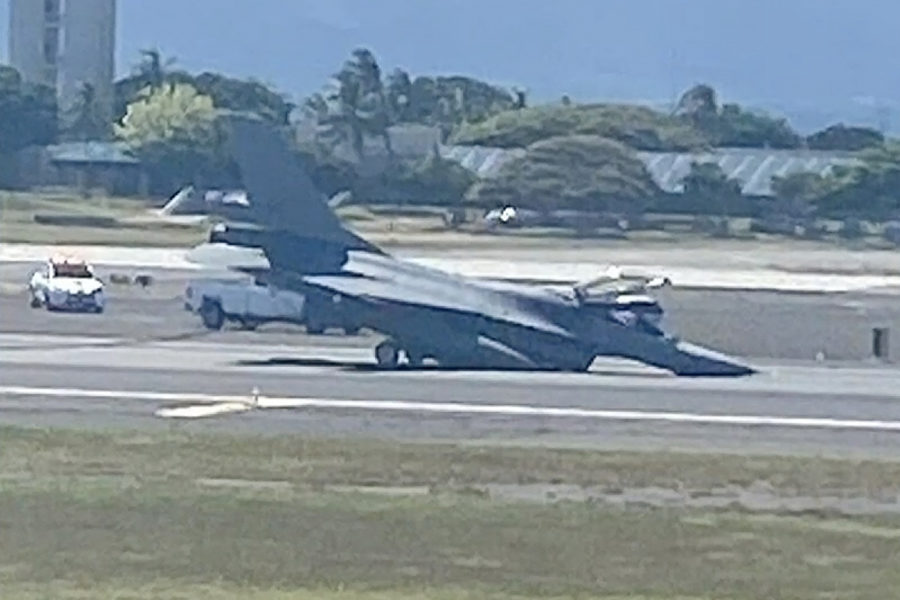Editor’s note: This story was updated at 1:06 p.m. Eastern Time on June 7 to include the information from a Defense Department official; and at 6:27 p.m. to include details from another DOD statement.
HONOLULU—A Taiwanese F-16 crash landed at Honolulu’s Daniel K. Inouye International Airport on June 6 on its way back after conducting training at Luke Air Force Base, Ariz., according to local media reports.
The fighter jet reportedly made a hard landing at 2:45 p.m. local time after its front landing gear failed to deploy. The pilot was not injured. The nose of the aircraft was visible, pinned to the 4R runway with commercial aircraft diverted until a crane could remove the aircraft.
A Defense Department official confirmed to Air Force Magazine than “an F-16 hard landing occurred at Honolulu International Airport. The incident is under investigation.” DOD officials later said, in a statement:
“[An] F-16 aircraft declared an In Flight Emergency … June 6 at approximately 1500 p.m. HST. The pilot was evaluated at the scene” then taken to a “military treatment facility for evaluation.”
Taiwanese media reported May 26 that four F-16s had landed in Honolulu en route to Luke Air Force Base for training, their identifying markings covered. Taiwan has previously requested from the Pentagon a Pacific Coast training center for its aircraft, which require some dozen aerial refuelings to reach the Arizona training center from the island, which is situated 100 miles off the coast of China.
Tensions between China and the United States have risen in recent weeks after President Joe Biden gave vague assurances during a trip to the region that the United States military would become involved should China invade Taiwan. Defense Secretary Lloyd J. Austin III and other defense officials regularly state that China is the department’s pacing challenge.
Taiwan is administered independent of China, but it is not recognized as a separate nation by the U.S. Department of State.
The U.S. One China policy recognizes Beijing as the only government of China, but the 1979 Taiwan Relations Act provides that the United States will adequately arm Taiwan to defend itself. In recent years, Taiwan has purchased millions of dollars in U.S. defense articles to protect itself from a potential invasion by Beijing.
U.S. military leaders have estimated that China could be militarily prepared to invade Taiwan as early as 2025.
U.S. Pacific allies, including Japan and Australia, are bracing for the possibility of supporting the United States should a conflict with China arise in the Taiwan Straits.

